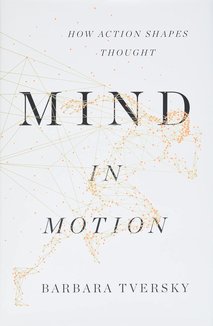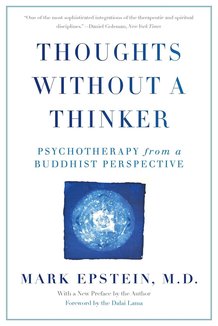Recommended Books

Supersizing the Mind: Embodiment, Action, and Cognitive Extension (Philosophy of Mind)
Author:
Andy Clark
ISBN 13:
978-0199773688
When historian Charles Weiner found pages of Nobel Prize-winning physicist Richard Feynman's notes, he saw it as a "record" of Feynman's work. Feynman himself, however, insisted that the notes were not a record but the work itself. In Supersizing the Mind , Andy Clark argues that our thinking doesn't happen only in our heads but that "certain forms of human cognizing include inextricable tangles of feedback, feed-forward and feed-around loops: loops that promiscuously criss-cross the boundaries of brain, body and world." The pen and paper of Feynman's thought are just such feedback loops, physical machinery that shape the flow of thought and enlarge the boundaries of mind. Drawing upon recent work in psychology, linguistics, neuroscience, artificial intelligence, robotics, human-computer systems, and beyond, Supersizing the Mind offers both a tour of the emerging cognitive landscape and a sustained argument in favor of a conception of mind that is extended rather than "brain-bound." The importance of this new perspective is profound. If our minds themselves can include aspects of our social and physical environments, then the kinds of social and physical environments we create can reconfigure our minds and our capacity for thought and reason.

Mind in Motion: How Action Shapes Thought
Author:
Barbara Tversky
ISBN 13:
978-0465093069
An eminent psychologist offers a major new theory of human cognition: movement, not language, is the foundation of thought When we try to think about how we think, we can't help but think of words. Indeed, some have called language the stuff of thought. But pictures are remembered far better than words, and describing faces, scenes, and events defies words. Anytime you take a shortcut or play chess or basketball or rearrange your furniture in your mind, you've done something remarkable: abstract thinking without words. In Mind in Motion , psychologist Barbara Tversky shows that spatial cognition isn't just a peripheral aspect of thought, but its very foundation, enabling us to draw meaning from our bodies and their actions in the world. Our actions in real space get turned into mental actions on thought, often spouting spontaneously from our bodies as gestures. Spatial thinking underlies creating and using maps, assembling furniture, devising football strategies, designing airports, understanding the flow of people, traffic, water, and ideas. Spatial thinking even underlies the structure and meaning of language: why we say we push ideas forward or tear them apart, why we're feeling up or have grown far apart. Like Thinking, Fast and Slow before it, Mind in Motion gives us a new way to think about how--and where--thinking takes place.

Thoughts Without A Thinker: Psychotherapy from a Buddhist Perspective
Author:
Mark Epstein
ISBN 13:
978-0465050949
Blending the lessons of psychotherapy with Buddhist teachings, Mark Epstein offers a revolutionary understanding of what constitutes a healthy emotional life The line between psychology and spirituality has blurred, as clinicians, their patients, and religious seekers explore new perspectives on the self. A landmark contribution to the field of psychoanalysis, Thoughts Without a Thinker describes the unique psychological contributions offered by the teachings of Buddhism. Drawing upon his own experiences as a psychotherapist and meditator, New York-based psychiatrist Mark Epstein lays out the path to meditation-inspired healing, and offers a revolutionary new understanding of what constitutes a healthy emotional life.